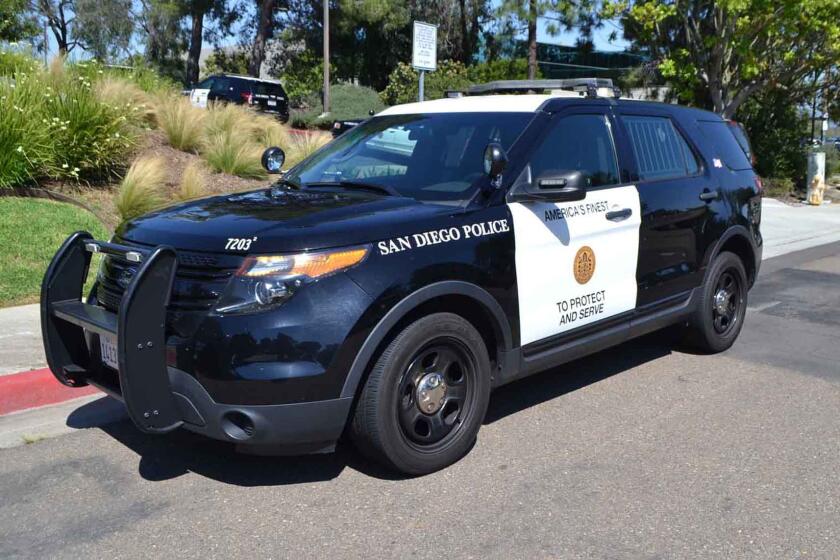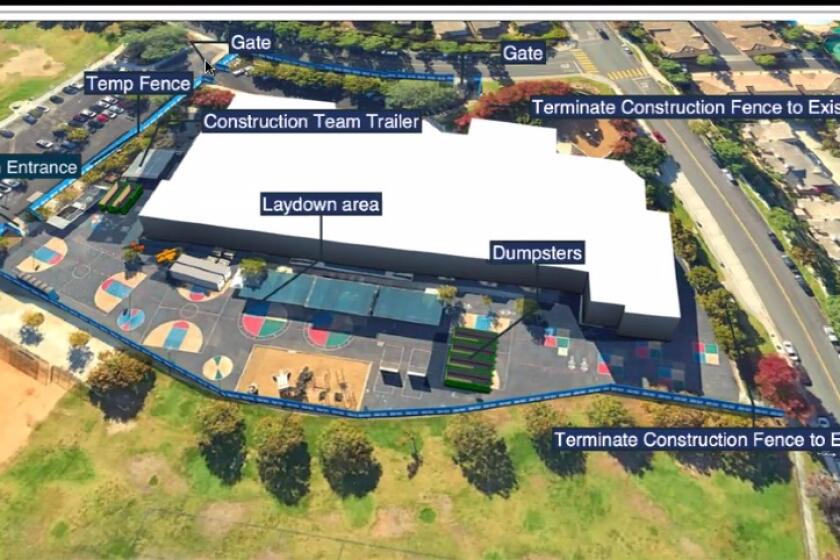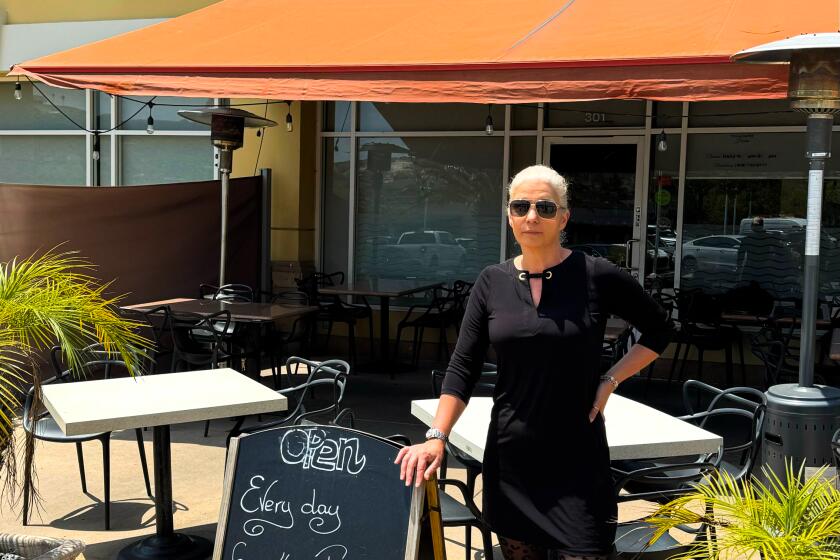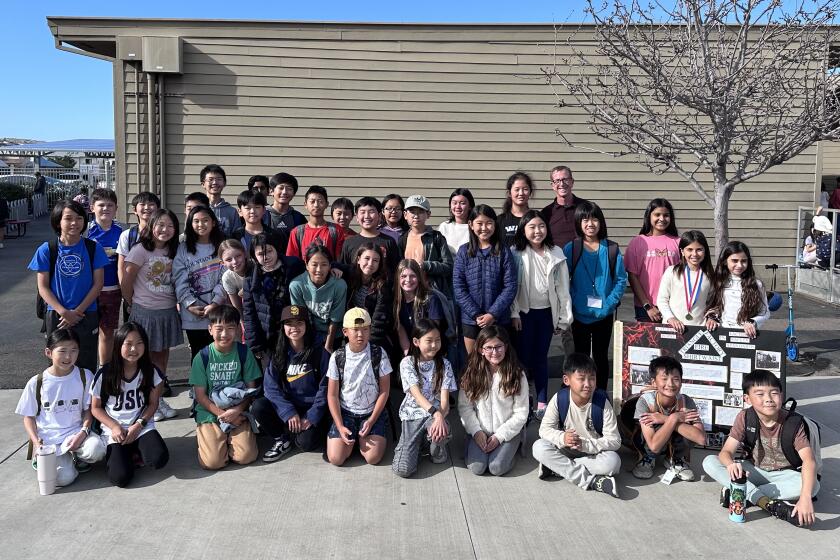Solana Beach to negotiate contract with consultant team for CCA services
Continuing to explore the possibility of creating the county’s first local power program, the Solana Beach City Council on Nov. 16 authorized the city manager to initiate negotiations with a consultant team to provide Community Choice Aggregation services to the city.
Prior to the vote, Assistant City Manager Dan King explained that taking this step does not mean the city has to now create a CCA program.
“If the council authorizes the city manager to initiate contract negotiations, this neither commits the city to launching a CCA nor approves a contract for those services,” King said. “There would be no financial costs to the city at this time other than staff time to carry out the negotiations.”
The city received proposals from three companies interested in helping Solana Beach create a CCA program. Authorized by state law, CCAs allow cities, counties and other authorized entities to purchase or generate alternative energy supplies for residents and businesses within their jurisdiction while maintaining the existing power provider for transmission and distribution services.
According to the staff city report, the goal of a CCA is to provide a higher percentage of renewable energy at competitive and potentially cheaper rates while giving customers local choices and promoting the development of renewable power sources.
There are a number of CCAs operating in California and other states.
There are currently four established CCAs in California. Other jurisdictions are currently exploring CCAs and are in various stages of forming programs. It is estimated that more than 70 percent of the current energy load in California is in areas that either have an existing CCA program or are looking into establishing a CCA program, according to a previous city staff report.
The council has been supportive of researching and possibly developing a CCA program since 2011.
“We have been discussing this for quite some time, and we have a pretty long road ahead of us as well,” Councilman Mike Nichols said.
CCAs were first placed on the council’s work plan as an “unprioritized” environmental sustainability issue to study in 2012. The issue was elevated to a “priority” in the council’s work plan the following year.
Earlier this year a company conducted a technical study at no cost that indicated a CCA is a viable option for the city. In June, Solana Beach became the first city in the county to formally seek a service provider to form a CCA when it solicited a request for proposals.
The city received three bids from 3 Phases Renewables; prime contractor Pilot Power Group Inc. and sub-contractor EDMS; and prime contractor The Energy Authority and sub-contractor Noble Energy Solutions.
City staff and two outside expert consultants — Stephen Hall, attorney with Troutman Sanders LLP, and Barbara Boswell, retired finance director of the city of Lancaster — separately reviewed and ranked the proposals. They determined that TEA/Noble and Pilot Power/ EDMS submitted the top two proposals.
TEA is a not-for-profit power marketing corporation owned by eight municipal and state-chartered elected utilities. Created in 1997, the company currently manages more than 30,000 megawatts of electric generation on behalf of 50 community-owned electric utilities. Noble is one of the largest electric services providers in the state by volume. Ranked in the top five in the country, Noble currently provides data management services for all five operational CCAs in California.
In a 4-1 vote, the council authorized the city manager to initiate negotiations with TEA/Noble. Councilwoman Ginger Marshall cast the sole dissenting vote.
“Staff and CCA experts believe that each team is highly qualified and could provide the requested services,” Assistant City Manager Dan King said. “TEA/Noble has more direct experience with CCA formation and operations, especially in management services.”
If an agreement is reached with TEA/Noble, staff will return to council in the future for approval of the agreement. If an agreement is not reached with TEA/ Noble, staff recommended that the council reserve the right to initiate negotiations with Pilot Power Group Inc./EDMS for CCA services.
The first phase of the project, which would take place in the first six months, includes conducting community and local government outreach, creating an implementation plan, and developing an operations budget and staffing plan.
During or at the completion of the first phase, if either side does not want to move forward, King said that the relationship can be severed with no cost to the city.
“Phase one is at no cost, no risk,” Nichols said. “All we’re going to do is get a lot of good information. We’re going to have all that public outreach that everybody wants to have.”
If the city decides to move forward, City Manager Greg Wade explained that the next phases would be launching and operating the program.
He said it would take another six to 12 months to launch the program. The California Public Utilities Commission would have to approve the implementation plan.
The city would also have to notify every customer within the city at least four times about the creation of a CCA program, giving them multiple opportunities to opt out of the program.
“I think that all of us have some questions and the only way we’re going to get them answered is by moving forward with this,” Councilwoman Lesa Heebner said.
“I think it’s important that we have local control,” she added. “I think it’s really important that we’re going to have lots of public engagement.”
“We’re not rushing into this; we’re going to take it in phases,” Deputy Mayor Peter Zahn said.
Get the Del Mar Times in your inbox
Top stories from Carmel Valley, Del Mar and Solana Beach every Friday for free.
You may occasionally receive promotional content from the Del Mar Times.




